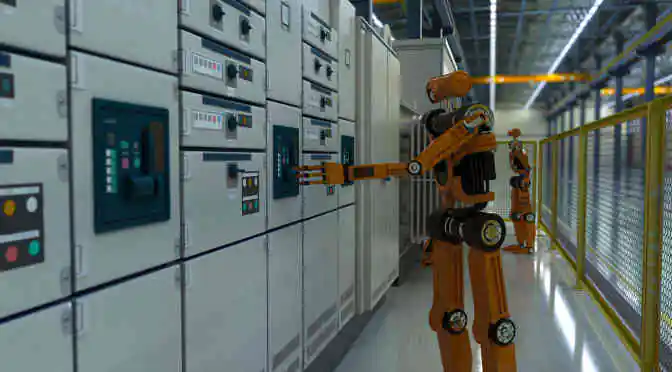In our previous blogs in this series, we reviewed the overriding impact and varied applications of artificial intelligence in the US education sector, and the ever-growing agriculture industry. In this final series blog, we will set a spotlight on the applications of AI technology in the industrial sector.
After decades of extravagant promises, artificial intelligence (AI) technology is finally delivering the strategic benefits for companies in several sectors. Industries on the digital frontier massively rely on AI technologies to deliberate, deduce, analyze, and invent new technologies that can guarantee the universally profitable fourth industrial revolution. The adoption of AI allows easy integration of industrial Internet of Things (IIoT) and seamless communication between automated machines on the factory floor and the command center.
Emerging trends : Revamping industrial operations for good
Along with the widespread adoption, the accelerating trends in artificial intelligence (AI) and robotics are sure to pose a significant economic disruption in the coming years. From the rise of swarm technologies to the use of AI devices in combating the security threats and advanced robotics programming, a confluence of advancements is driving this new wave of AI development.
Building the smart hive : Rise in swarm AI technology
As the adage goes, many minds are better than one, and the new swarm AI technology is set to prove it right. Modelled on worker ants that are the base units of swarm intelligence, swarm AI technology comprises of a surge of skilled workers and team members, that executes all tasks in a focused manner while maintaining constant communication.
Swarm intelligence is a collective behavior of decentralized, self-organized, and simple agents that can maintain constant interaction with each other and adapt to the prevalent environment. One of their most remarkable characteristics is the ability to adapt to fluctuating stresses like weight and viscosity, promptly and effectively.
AI technology for advanced robot programming
Over the past few years, the emergence and adoption of industrial robots within the companies in many countries including Germany, China, Japan, South Korea, and the US is growing at an exponential rate. Moreover, in order to augment the capacity of largely deployed industrial robots, the companies are collaborating with AI technologies such as deep learning and other programming networks. By using neural programming networks, the robots can be empowered to analyze and teach themselves as well as other robots, new functions and capabilities through self-captured videos.
Use of AI to combat cyber security threats
While using the automation solutions, security threats and leakage of sensitive information are the major glitches faced by manufacturing industries including oil and gas, automotive, chemical, food and beverage as well as pharmaceutical. Hence, a new security model based on artificial intelligence is devised with advanced security programs to address the major security issues including the failure of firewalls and scalability challenges.
Unleashing the full potential of AI with market insights
Established international vendors including Amazon Web Services, IBM, Siemens, and Omron Adept Technologies dominate the global market for AI in the industrial space. Thus, aspiring new entrants and other existing vendors will find it hard to stand out in the ultra-competitive global AI market.
Expert market research report from Technavio helps you understand the market through a comprehensive study of the significant aspects of the industry. The report delivers a detailed analysis and in-depth market insights covering the crucial facets of the industry including current trends, key growth drivers, segmentation, applications, future market prospects, and value chain analysis.



